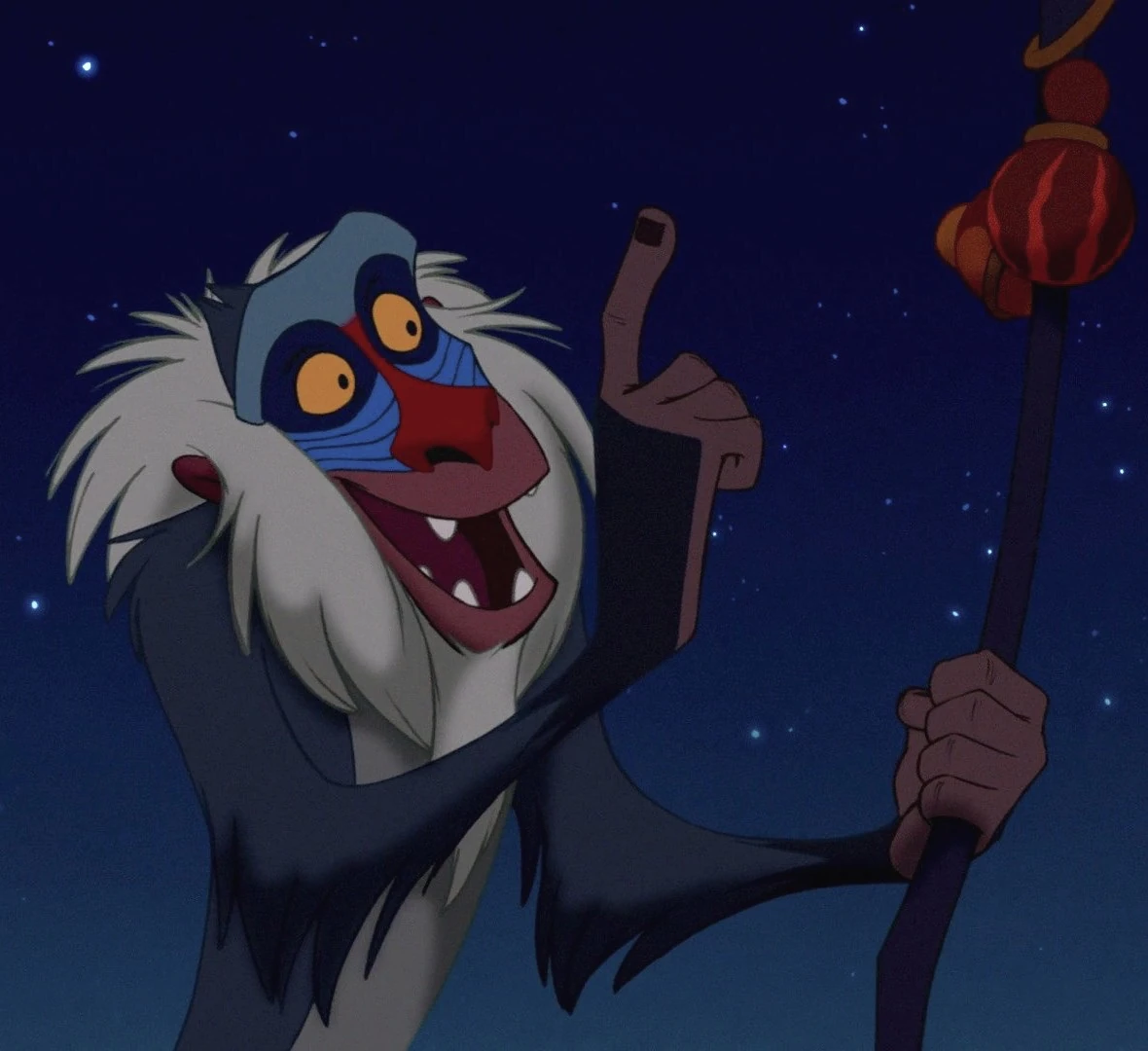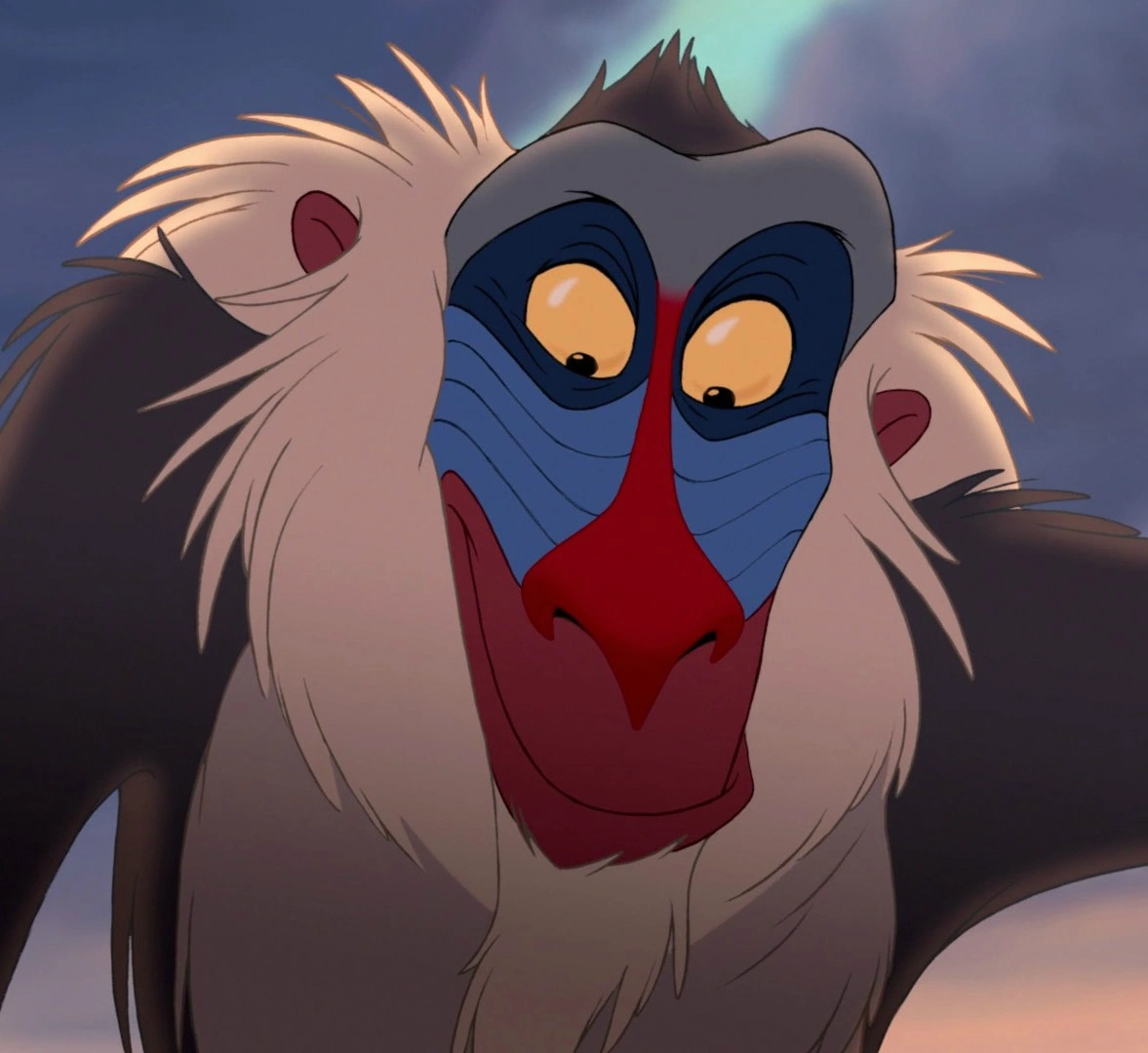What Is Rafiki? A Comprehensive Guide To Understanding This Iconic Term
Have you ever come across the term "Rafiki" and wondered what it means? Whether you're a fan of The Lion King or simply curious about African culture, Rafiki holds a special place in both pop culture and tradition. This article will take you on a journey to explore the meaning, significance, and history behind Rafiki, ensuring you leave with a deeper understanding of this fascinating concept.
Let’s face it, Rafiki isn’t just a random name—it carries layers of meaning that go beyond the surface. From its cultural roots to its role in modern storytelling, Rafiki has become more than just a character; it’s a symbol of wisdom, friendship, and connection. So, buckle up as we dive deep into the world of Rafiki and uncover why it matters.
In this guide, we’ll break down everything you need to know about Rafiki, from its origins in Swahili culture to its iconic representation in The Lion King. Whether you’re here for the cultural context or just want to impress your friends with some trivia, you’re in the right place. Let’s get started!
Here’s what we’ll cover:
- The Origin of Rafiki
- Cultural Significance of Rafiki
- Rafiki in The Lion King
- Symbolism Behind Rafiki
- Real-Life Inspiration for Rafiki
- Rafiki in the Swahili Language
- Modern Usage of Rafiki
- Benefits of Embracing Rafiki Values
- Frequently Asked Questions About Rafiki
- Conclusion: Why Rafiki Matters
The Origin of Rafiki
Rafiki is a word that originates from the Swahili language, spoken widely across East Africa. Swahili, or Kiswahili, is one of the most widely spoken languages in Africa, and its words often carry deep cultural significance. Rafiki, in particular, means "friend" or "companion," highlighting the importance of relationships and community in African traditions.
But how did Rafiki make its way into global consciousness? Well, it started with Disney’s The Lion King, where Rafiki became an unforgettable character known for his wisdom, humor, and mystical aura. While the character may have been fictional, the essence of Rafiki as a friend and guide resonated deeply with audiences worldwide.
Let’s not forget, though, that Rafiki isn’t just a name—it’s a philosophy. In Swahili culture, friendship is seen as a sacred bond, and Rafiki embodies this idea perfectly. It’s no wonder why the term has stuck around and continues to inspire people across the globe.
Why Rafiki Is More Than Just a Name
Here are a few key points about Rafiki’s origin:
- Rafiki comes from the Swahili language.
- It translates to "friend" or "companion."
- Its use in The Lion King popularized it globally.
Cultural Significance of Rafiki
In African culture, friendship and community are at the heart of everything. Rafiki, as a term, represents the value of having someone in your life who supports, guides, and uplifts you. This concept goes beyond just being friends; it’s about forming deep, meaningful connections that last a lifetime.
For many Africans, Rafiki is more than just a word—it’s a way of life. It emphasizes the importance of loyalty, trust, and mutual respect in relationships. These values are deeply ingrained in African societies and play a crucial role in maintaining harmony within communities.
Interestingly, the idea of Rafiki can also be seen in various African proverbs. For example, there’s a saying in Swahili that goes, "Mwanamke mwanamke, kama kamba ya paa" (A woman is a woman’s friend, like a rope tied around the waist). This proverb highlights the importance of female friendships and how they provide strength and support in life.
How Rafiki Reflects African Values
Some of the key cultural values associated with Rafiki include:
- Community: The idea that we are stronger together.
- Wisdom: Seeking guidance from those who have walked the path before us.
- Compassion: Understanding and empathizing with others.
Rafiki in The Lion King
Let’s talk about the elephant in the room—or rather, the mandrill in the jungle. Rafiki, the wise old baboon from The Lion King, is one of the most beloved characters in Disney history. Voiced by the late great Robert Guillaume, Rafiki brought a unique blend of humor, wisdom, and mysticism to the story.
In the movie, Rafiki serves as Simba’s mentor and guide. He teaches Simba valuable lessons about responsibility, courage, and self-discovery. One of Rafiki’s most iconic moments is when he smacks Simba with his stick, saying, "It doesn’t matter. It’s in the past." This scene perfectly encapsulates Rafiki’s role as a sage who helps others confront their fears and move forward.
But Rafiki isn’t just a character—he’s a symbol. He represents the connection between the past, present, and future, reminding us that our actions today shape the world tomorrow. His presence in The Lion King adds depth and meaning to the story, making it more than just a kid’s movie.
Key Traits of Rafiki in The Lion King
Here’s what makes Rafiki such a memorable character:
- Wise and knowledgeable.
- Comical yet serious when needed.
- A source of comfort and guidance.
Symbolism Behind Rafiki
When we think of Rafiki, we often associate him with symbols like the baobab tree, the ashe (spiritual energy), and the staff he carries. Each of these elements carries deep meaning and reflects Rafiki’s role as a spiritual guide.
The baobab tree, for instance, is considered sacred in many African cultures. It symbolizes strength, resilience, and longevity. Similarly, Rafiki’s staff represents authority and wisdom, emphasizing his role as a leader and mentor.
Moreover, Rafiki’s use of ashe—a spiritual force believed to connect the living with the ancestors—highlights the importance of tradition and heritage. This connection to the past ensures that the wisdom of previous generations is passed down, keeping their legacy alive.
What Rafiki’s Symbols Mean
Here’s a breakdown of Rafiki’s symbolism:
- Baobab Tree: Strength and resilience.
- Staff: Authority and wisdom.
- Ashe: Connection to the spiritual realm.
Real-Life Inspiration for Rafiki
While Rafiki may be a fictional character, his traits and values are inspired by real-life figures in African history and culture. Many African elders and spiritual leaders embody the wisdom and guidance that Rafiki represents.
For example, traditional healers and shamans in Africa often serve as mentors and guides within their communities. They use their knowledge of herbs, rituals, and ancient practices to help others overcome challenges and find balance in life. These individuals are much like Rafiki, offering wisdom and support to those in need.
Additionally, the character of Rafiki draws inspiration from African folklore, where animals often play important roles as teachers and protectors. This blend of reality and mythology makes Rafiki a truly unique and relatable figure.
Who Are the Modern-Day Rafikis?
Today, there are many people who embody the spirit of Rafiki:
- Community leaders who advocate for change.
- Mentors who guide the next generation.
- Friends who offer unconditional support.
Rafiki in the Swahili Language
Swahili is a beautiful language with a rich history and vocabulary. As mentioned earlier, Rafiki means "friend" or "companion" in Swahili. However, the word carries even deeper meanings depending on context.
In some cases, Rafiki can refer to a close confidant or someone you trust implicitly. It can also describe a relationship that goes beyond mere friendship, encompassing a sense of family and belonging. This nuanced understanding of Rafiki reflects the complexity of human relationships and the importance of meaningful connections.
Interestingly, Swahili is not just spoken in East Africa but has also influenced languages around the world. Words like "safari" (journey) and "hakuna matata" (no worries) have entered the global lexicon, thanks in part to The Lion King.
How Swahili Enriches Our Understanding of Rafiki
Here’s how Swahili adds depth to the meaning of Rafiki:
- It emphasizes the importance of trust and loyalty.
- It highlights the value of deep, meaningful relationships.
- It connects us to a rich cultural heritage.
Modern Usage of Rafiki
In today’s world, Rafiki has taken on new meanings and applications. From social media hashtags to business names, the term Rafiki is used to convey friendship, support, and community. Many organizations and initiatives use Rafiki as part of their branding to emphasize these values.
For instance, there are numerous NGOs and charities that incorporate Rafiki into their mission statements, highlighting their commitment to building strong, supportive communities. Similarly, businesses that focus on teamwork and collaboration often adopt the name Rafiki to reflect their core values.
Even in pop culture, Rafiki continues to inspire. Fans of The Lion King often refer to their close friends as "Rafikis," creating a sense of camaraderie and shared experience. This modern usage of Rafiki shows how timeless and universal its message truly is.
Examples of Modern Rafiki Usage
Here are some ways Rafiki is used today:
- Social media campaigns promoting friendship.
- Businesses focused on community building.
- Charities emphasizing support and solidarity.
Benefits of Embracing Rafiki Values
Embracing Rafiki values can have a profound impact on both personal and professional lives. By prioritizing friendship, wisdom, and community, we can create stronger, more meaningful connections with those around us. Here are some of the benefits:
Firstly, fostering friendships based on trust and mutual respect leads to greater emotional well-being. When we surround ourselves with people who genuinely care about us, we feel more supported and empowered to face life’s challenges.
Secondly, seeking guidance from mentors and elders helps us grow and develop. Whether it’s in our careers or personal lives, having someone to turn to for advice can make all the difference.
Finally, building communities centered around Rafiki values promotes inclusivity and understanding. By embracing diversity and celebrating our differences, we create environments where everyone feels valued and respected.
How Rafiki Values Can Transform Your Life
Here’s how embracing Rafiki values can benefit you:
- Improved emotional well-being.
- Greater opportunities for growth and development.
- Stronger, more inclusive communities.
Frequently Asked Questions About Rafiki
Before we wrap up, let’s address some common questions about Rafiki:
Q: Is Rafiki a real person?
A: No, Rafiki is a fictional character from The Lion King. However, his traits and values are inspired by real-life figures in African culture.
Q: What does Rafiki mean in Swahili?
A: Rafiki means "friend" or "companion" in Swahili.
Q: Why is Rafiki important?
A: Rafiki represents wisdom, friendship, and community, making him a powerful symbol in both pop culture and African traditions.
Conclusion: Why Rafiki Matters
As we’ve explored in this article, Rafiki is more than just a word or a character—it’s a philosophy that emphasizes the importance of friendship, wisdom, and community. Whether you’re a fan of The Lion King
Emily Vancamp: The Rising Star Of Hollywood's Brightest Constellations
Who Is G Eazy's Girlfriend? Unveiling The Love Life Of The Talented Artist
Henry Thomas: The Legendary Actor Who Stole Hearts In Hollywood

Rafiki Disney Wiki Fandom

Rafiki The Lion King Wiki Fandom

Yaket water Rafiki Online